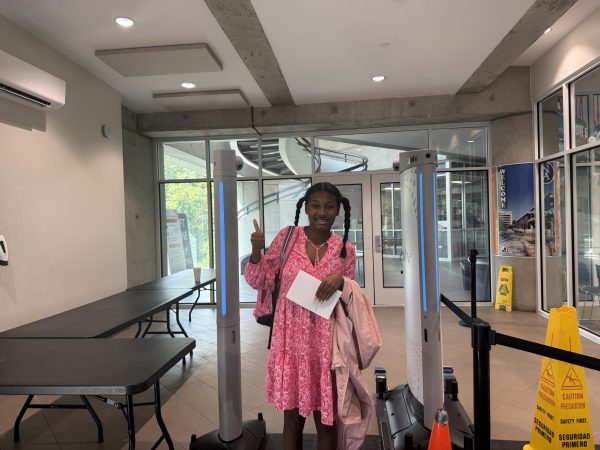Dubs Reflect: Facing the Loss of a Queen
Queen Elizabeth II stands at Balmoral, where she spent her final days. Dubs and the global community alike are navigating the loss of a matriarch and reflecting on the legacy she left behind.
On September eighth, the news broke globally that Queen Elizabeth II had peacefully passed away in the comfort of her Scottish Estate, Balmoral. Having just celebrated her platinum jubilee – recognizing 70 years on the throne – and her 96th birthday, Thursday’s news didn’t shock many. Nevertheless, the loss provoked many reactions from Dubs throughout the eleven stories.
Phones pinged throughout third period as students and staff received the saddening news. For North Atlanta sophomore and the royal subject of the king – a form of British dual citizenship – Annabelle Haines, she saw the alert in the middle of her precalculus class. Whispers flew around the classroom as students put down their pencils to open their phones. Aside from her sadness, Haines’ first thoughts went out to her father, who was born and raised in the United Kingdom. For her family, the Queen had become a symbol of familiarity and British culture, and her loss will not be an easy adjustment. “My dad describes it as losing a distant grandmother you never got the chance to know,” said Haines. “She’s been a constant for as long as anyone can remember, and it will take a while to get used to the idea that she’s gone.”
To the surprise of many students, French teacher Robin Oliver is also a British citizen, having called the UK his home for several decades. Oliver learned of the Queen’s death through condolences from 11th-grade counselor Kaye Boykin. Despite never being a fan of the Royal Family, Oliver had immense respect for her majesty. He had always viewed her as intelligent, wise, and good-humored. With their parents still in London, he feels he’s living through the entire experience second-hand. “An event like this rallies the whole community together, despite any hardships or differences,” said Oliver.
Although the Queen’s death saddened many, not all shared the perspectives of Oliver and Haines. Junior Siarah Sethi was shocked that many of her peers tended to talk only about the admirable attributes of the late Queen. As England’s matriarch, many hold her accountable for supporting modern-day colonialism and multiple of the government’s openly racist actions over the years of her rule, views shared by inhabitants of various former colonies of England, such as Ireland and India. “I didn’t have a lot of respect for the queen, but I was still shocked by the news,” said Sethi.
No matter one’s views on the impactful loss, Dubs agree that her loss will not be accepted overnight. As England welcomes its first king in more than 70 years, adjustments are just beginning. Most of the world’s population has yet to live through the death and coronation of an English monarch – and has little idea of what to expect. Some mourn while others jump for joy, but all feel a marked change in the global community that will likely linger for some time.












